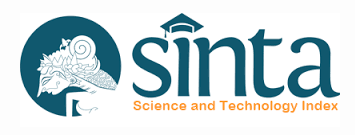PEMANFAATAN STASIUN TV LOKAL DI MAKASSAR UNTUK IKLAN KAMPANYE CALON ANGGOTA LEGISLATIF 2019
Abstract
Popularity becomes crucial for politicians in the direct elections event. High popularity is the capital to achieve electability. Popularity requires massive political work, including the use of media, one of which is television. Television has the advantage of being able to present messages in the form of audio-visual so that it gives a big influence. This study aims to examine the use of television stations for campaign advertisements for legislative candidates in the 2019 elections. The television stations that are in focus are the two local television stations in Makassar, Fajar TV and Celebes TV. This type of research is qualitative with descriptive methods. The informant is a candidate who has experience as a TV broadcaster. The study findings were astounding, where the candidates recognized the greatness and influence of television, but instead did not use it to hoist its popularity. Legislative candidates turn to social media.
References
Bajari, Atwar, 2017. Metode Penelitian Komunikasi, Prosedur, Trend an Etika, Bandung: Simbiosa Rekatama Media.
Heryanto, Gun Gun, 2018, Media Komunikasi Politik. Yogyakarta : IRCiSoD
------------- 2019, Panggung Komunikasi Politik. Yogyakarta : IRCiSoD
https://media.neliti.com/media/publications/167119-ID-popularitas-politikus-antara-kerja-polit.pdf
Nurudin, 2009. Pengantar Komunikasi Massa. Jakarta : Rajawali Pers
Panuju, Redi, 2015. Sistem Penyiaran Indonesia, Sebuah Kajian StrukturalismeFungsonal. Jakarta: Prenada Grup
PKPU No. 23 Tahun 2018
PKPU No.33 Tahun 2018
Subiakto, Henry dan Ida, Rachmah, 2015. Komunikasi Politik, Media dan Demokrasi. Jakarta : Prenada Media Group
Uchyana Efendi, Onong, 1986. Dinamika Komunikasi Bandung, PT. Rosda Karya
Unde, Alimuddin, 2015. Televisi dan Masyarakat Pluralistik. Jakarta: Prenada Media Group
Once an article was published in the journal, the author(s) are:
granted to the journal right licensed under Creative Commons License Attribution that allows others to share the work with an acknowledgment of the work's authorship. permitted to publish their work online in third parties as it can lead to wider dissemination of the work. continue to be the copyright owner and allow the journal to publish the article with the CC BY license receiving a DOI (Digital Object Identifier) of the work.





